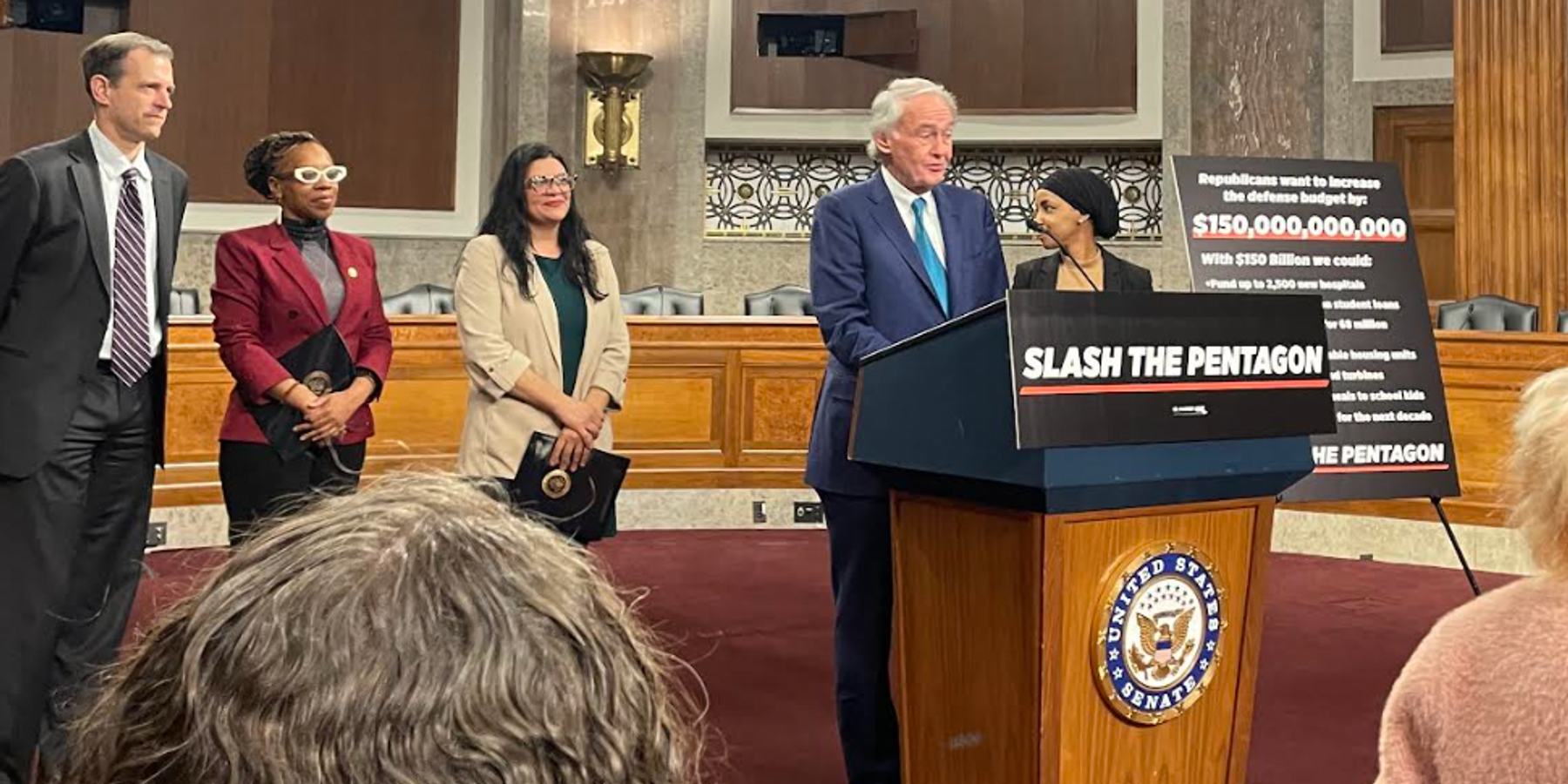A group of Democratic lawmakers led by Sen. Ed Markey (D-Mass.) on Tuesday slammed a Republican proposal to pour $150 billion into the military beyond the increases already planned for 2025.
“Republicans are putting the Pentagon before the people,” Markey said during a press conference on Capitol Hill highlighting wasteful Pentagon spending.
The senator stood next to a large list of alternative projects that could be funded by a $150 billion allocation including new hospitals, student loan forgiveness, affordable housing units, and free school lunches.
In 2024 the DoD budget was $825 billion; the current 2025 budget proposal is $850 billion, but senators just introduced a resolution to add another $150 billion over the next several years.
Rep. Ilhan Omar (D-Minn.) took aim at Elon Musk’s Department of Government Efficiency, highlighting the hypocrisy of a military budget increase amid massive cuts to much smaller federal agencies like the U.S. Agency for International Development, the National Institute of Health, and the Department of Education.
“Let’s not be fooled by the hollow claims that Elon is going to go after waste in Pentagon spending,” she said.
Rep. Rashida Tlaib (D-Mich.) said the $150 billion spending increase proposal was driven by her colleagues’ investments in the military industrial complex, echoing an opinion piece she published in the Detroit Free Press late last month.
Rounding out the slate of speakers were Robert Weissman, co-president of Public Citizen, Gabe Murphy, and Thomas Countryman. Murphy, a policy analyst at the nonpartisan organization Taxpayers for Common Sense, lamented the bloating influence of private companies, noting that “half of our budget goes to defense contractors.”
Meanwhile, Countryman, a former U.S. Assistant Secretary of State for International Affairs and current Board Chairman at the Arms Control Association, criticized the proposal’s emphasis on nuclear weapons spending as a defense strategy. “What concerns me about this particular agenda request by Republicans is that it will contribute to a nuclear arms race,” he said.
















